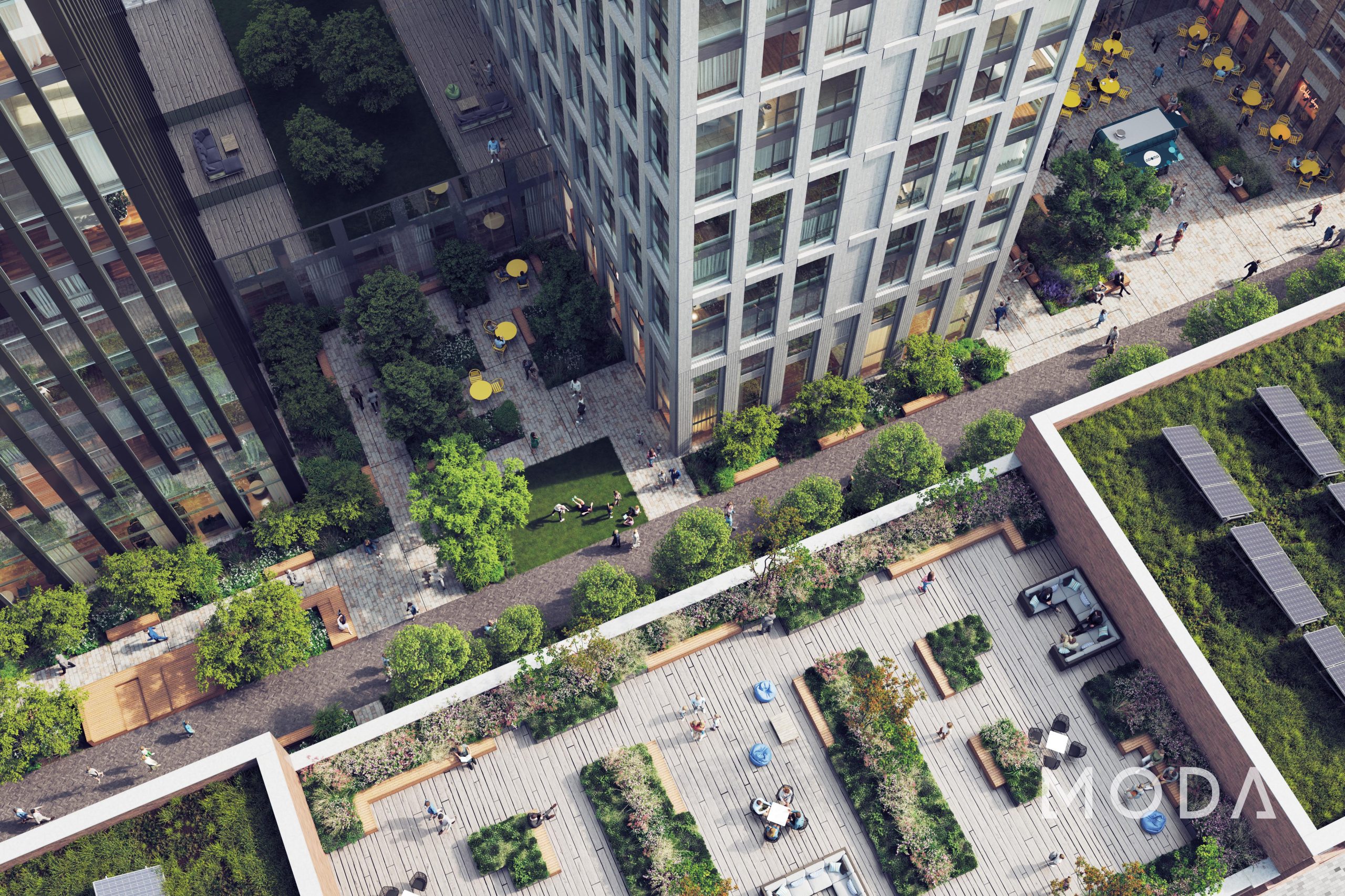
MODA Living Joins FOOTPRINT as a Founding Member
ONE OF THE UK’S LEADING BTR COMPANIES, MODA LIVING JOINS FOOTPRINT AS A FOUNDING MEMBER, PLEDGING ITS COMMITMENT TO NET ZERO CARBON
- Moda Living has joined FOOTPRINT a new national property event to be held in Brighton in 2021
- The UK’s fastest-growing rental brand hopes to encourage other players in the residential property sector to collaborate to make a meaningful contribution against climate change
- The built environment is responsible for 40% of the world’s total energy and process-related emissions, and yet must achieve net-zero carbon by 2050
- Moda has £850m of schemes under construction, the first tranche of a £2.5bn pipeline of over 8,000 rent only homes, and will launch a portfolio-wide ESG Strategy in January 2021
FOOTPRINT is an emerging movement of innovative, like-minded individuals working collectively to discuss how the property industry can move towards a zero-carbon future. Shadow Minister Peter Kyle and Caroline Lucas MP have already pledged their support.
Together with Moda, FOOTPRINT will welcome forward-thinking authorities, developers, investors, designers, consultants, and contractors to collaborate to find economic, sustainable solutions that will shift UK planning policy and accelerate action against climate change.
Moda has become a founding member of FOOTPRINT, as well as taking a seat on the advisory board alongside FOOTPRINT’S founders – renowned architects Emily Day and Tim Pyne together with Sophie Law-Smith, the champion of Design Brighton.
As a developer and operator, Moda is already committed to enhancing the sustainability of its neighbourhoods by applying long-term thinking into everything from choice of location and characteristics of the land; procurement and construction; the tech installed into its buildings; its operations and management; and the role they play in the communities they invest in.
The company believes that a sustainable building should have a sustainable location, and all Moda sites are brownfield – recycled land repurposed. Its neighbourhoods are all accessible by the widest range of transport options, so residents can use footpaths, cycleways, transport hubs, car, and cycle clubs, and their own vehicles. Moda offers bike cafés and purpose-built storage; car clubs so residents can minimise their environmental footprints; and electric car-charging hubs to future-proof its schemes.
Moda recently launched its innovative technology-enabled facilities management with tech firm Utopi, using IoT software to make its buildings truly Smart and sustainable. By extracting and aggregating valuable data you can monitor it and reduce the carbon footprint of facilities management by remotely fixing issues instead of sending an engineer to the site.
Having a consistent blueprint for digital infrastructure across its developments allows Moda to improve energy consumption, and to enhance the user experience for residents. The company opts for low energy white goods and appliances via Samsung, which is then controlled with integrated technologies.
Moda’s energy partner assists with buying clean bulk energy, provided to residents at a discount, ensuring heating of homes and water is done with financial sustainability and the health and the wellbeing of the planet in front of mind.
The company will also be adopting on-site energy production in photovoltaic solar panels and battery storage as they look to push sustainable boundaries further with innovative renewable energy solutions in future developments.

Green-space at Moda Great Charles Street
Johnny Caddick Chief Executive, Moda Living: “Leading BtR companies like Moda are making huge investments to regenerate communities across the UK, not only by building and operating high-quality homes to rent but in bringing people together with next-generation neighbourhoods. As long-term custodians of these accessible spaces, we need to ensure every community is vibrant, inclusive, and most importantly – sustainable.
“We must address this challenge as an industry, not in silos, which is why we have joined FOOTPRINT, an organisation that aims to address property’s zero-carbon challenge. We want to use our platform to appeal – not only to our own residents – to other decision-makers in the built environment to act now, not tomorrow. As a company, we are committed to reducing our footprint, and achieving green, zero-carbon living for the generations of the future and we hope that other BtR companies will join us in this mission.”
Emily Day, Co-Founder, FOOTPRINT: “As a brand, Moda understand that consumers are increasingly interested in the ethics of companies, and believe they have a responsibility to deliver. ESG is high on the agenda in 2021 and Johnny and his team understand that making positive changes requires commitment, a long-term vision, and substantial investment.
“FOOTPRINT enables meaningful conversation and progress on sustainability and zero carbon living, by joining together local authorities with different disciplines so that together we can make a real impact on the whole property industry.”
Shadow Minister, Peter Kyle MP: “I met the Moda team during a planning application for a 564-home BtR neighbourhood in Sackville Road, a run-down part of my constituency. I see the scheme as key to regenerating this area and the £10m which has been committed towards local infrastructure, schools, and public art, outdoor and indoor sports, parks and gardens, children’s play space, allotments, and green space is going to leave a superb legacy for generations to come.
“I was keen for Moda and Footprint to get together as not only are both organisations serious about discovering, discussing, and exploiting opportunities for carbon reduction in the built environment, but both will bring a massive job boost to Hove as well as signal to the UK that Brighton & Hove is serious about its 2030 carbon reduction target.”
FOOTPRINT will attract over 5,000 delegates from across the UK’s property eco-system including the movers and shakers from public office, retail healthcare, residential, logistics, industrial, and leisure sectors.